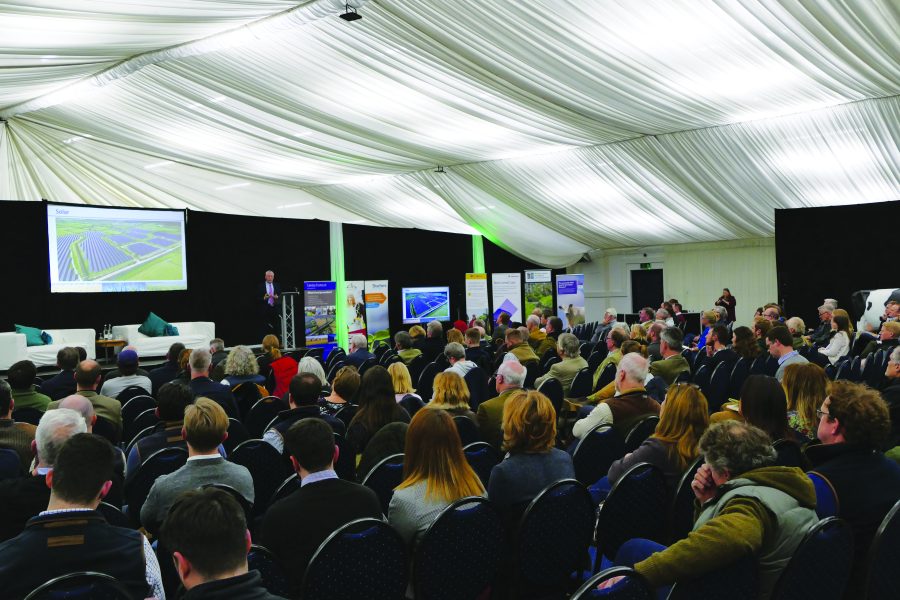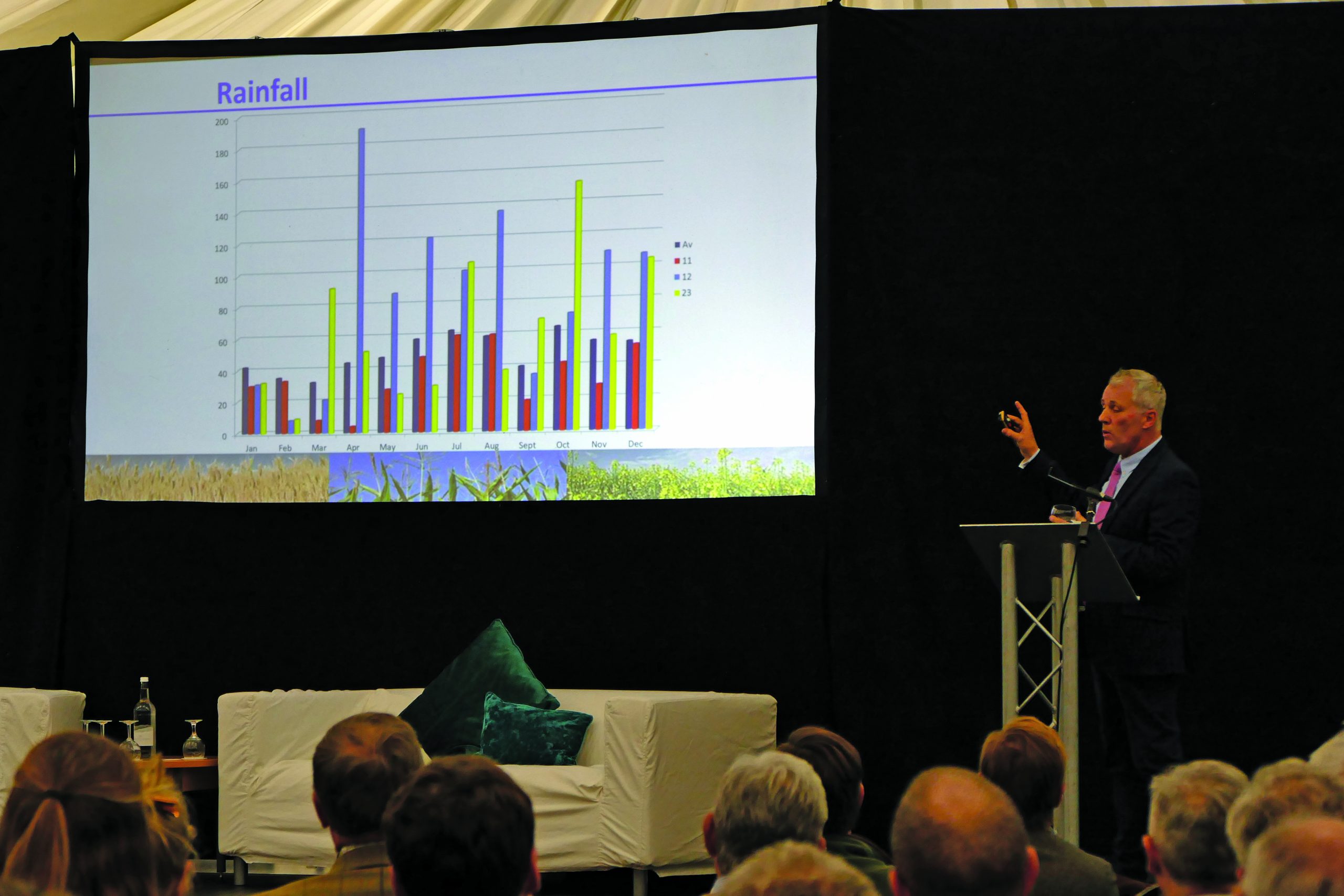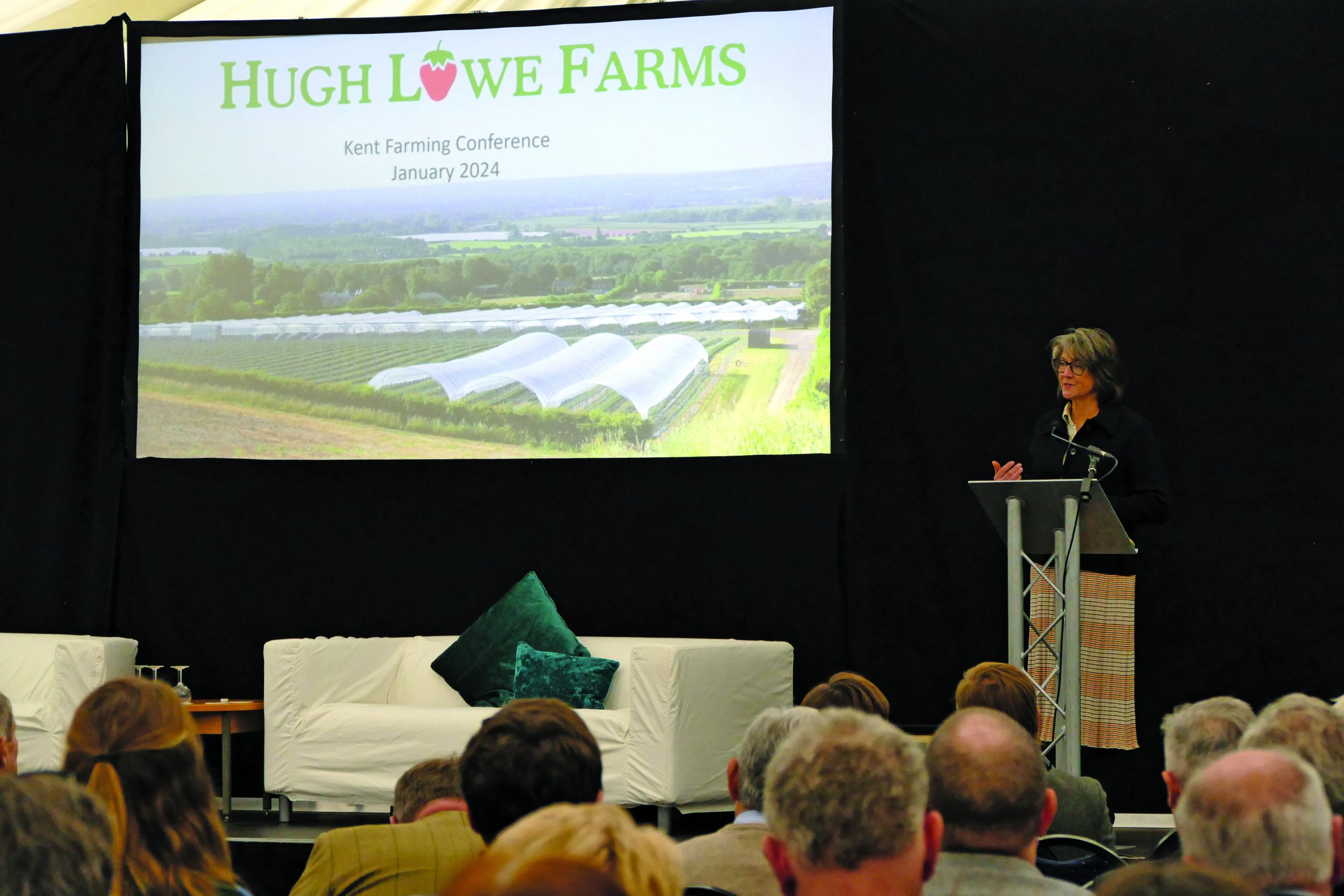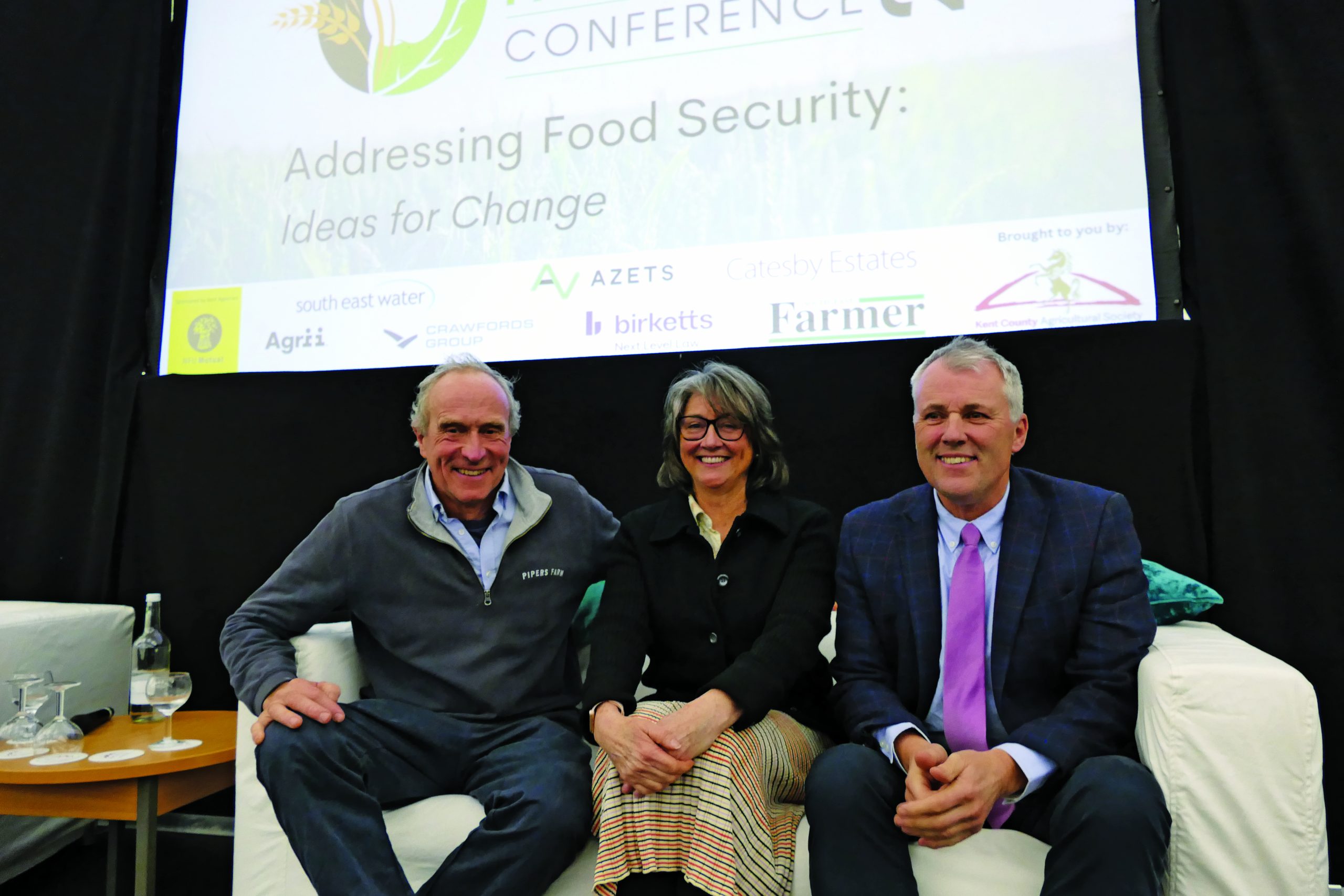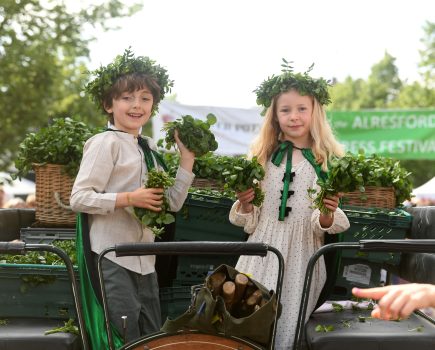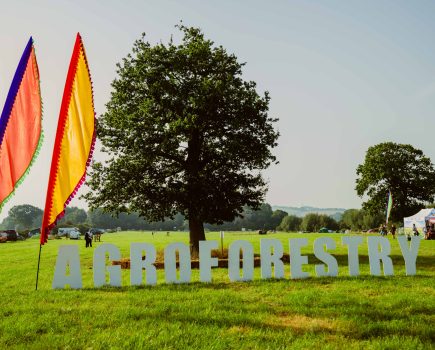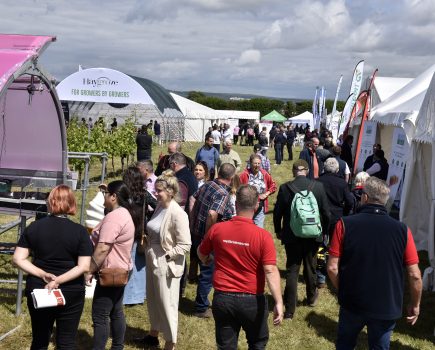“We need reward for the risks, and we can’t make progress without making a profit.” That was the stark message from the 2024 Kent Farming Conference, staged by the Kent County Agricultural Society (KCAS) towards the end of January.
The warning came from Marion Regan MBE, managing director of Hugh Lowe Farms and one of three well-chosen speakers tasked with unravelling this year’s theme of Addressing food security: ideas for change.
No-one minded that the three speakers ran well over the allotted time, although KCAS President William Boscowen, who hosted the well-attended evening, felt he should apologise for a late finish which simply reflected the speakers’ passion for their subject and the audience’s desire to hear their views.
It was Marion Regan, at the helm of a fifth generation family business growing strawberries, raspberries and blackberries, who stressed that growers needed a fairer cut from the supply chain in order to invest in the future.
She pointed out that the word “profit” comes from the Latin noun profectus, meaning “progress”, maintaining that if farmers and growers were unable to make money, they could not invest in the innovations needed not just for their own businesses but for society as a whole.
In her own business, she pointed out that there were opportunities to innovate in areas such as genetics, automation, robotics, renewable energy sources, integrated pest management and people, all areas that could bring long-term benefits for all.
Such investment was hindered, though, by rising costs that were rapidly outstripping the price at which she was able to sell produce, a point she demonstrated with a slide showing that the hourly wage rate in 2008 was around £5, with the strawberry price just shy of £11. In 2024, the national living wage is set to rise to £11.44, while the price of the fruit has remained static.
Referring to a comment she said she had heard her father make often, she pointed out: “Every year we bet the farm”, stressing at the end of her presentation: “The market doesn’t recognise the cost of production.”
The conference, held at the Kent Event Centre in Detling, also heard from two other accomplished speakers, Andrew Ward MBE, Lincolnshire arable farmer and founder of Forage Aid, and Peter Greig, the founder of Pipers Farm and an advocate of short supply chains.
Their fascinating contributions to the debate often went against the perceived wisdom, with both men particularly sceptical about the drive to calculate carbon emissions and uncertain about what exactly constitutes ‘regenerative’ farming.
Andrew, who admitted that a ‘carbon audit’ of his farm had shown he was well off the pace, pointed out that with so many different carbon calculators to choose from, he could have emerged from the exercise with a wide range of answers. “I’m honestly not sure what else I can do to reduce it,” he said.
On ‘regen’ farming, Peter said his approach to ‘regenerative’ was to encourage the next generation to continue growing food sustainably for people to eat.
Again perhaps unusually, and following a seven-year trial, Andrew is reverting to a ‘deep mintill’ approach on his land, abandoning cover cropping after getting better results without it. He also pointed out that since grain locked up huge amounts of carbon, actions which were aimed at reducing carbon emissions could be counter-productive if they resulted in a lower yield.
Andrew spent some time outlining his successful approach to getting rid of black-grass, based on not growing wheat and spraying off any areas that re-emerged. “Don’t keep doing the same thing,” he stressed. “You can get rid of it.”
Peter Greig, who began with a fascinating look back at history, including his ancestor David Greig’s battle with John Sainsbury for supermarket supremacy, said the UK needed to look at establishing food security “from the bottom up”, which needed growers to take more control of shorter supply chains.
He acknowledged that farmers could earn large sums by taking up Sustainable Farming Incentive payments or installing solar PV arrays but said that when it came to growing food, they had become ‘price takers’, asking: “How did we get here?”
Pipers Farm, run by Peter and wife Henri, butchers and supplies meat that is reared by 45 small scale family farms which produce grass-fed beef, lamb and mutton, free range chicken, pigs, ducks, poultry, wild venison and game.
Peter also picked out a number of ‘legends’ whose business approach he admired, including Archie Norman, who he said had “turned M&S around” by taking it back to its “timeless values” of quality, value, service innovation and trust, dairy company Arla Foods and Yeo Valley Organic, which he described as an “epic British business”.

